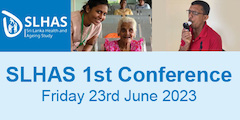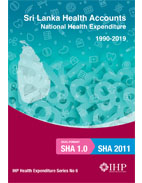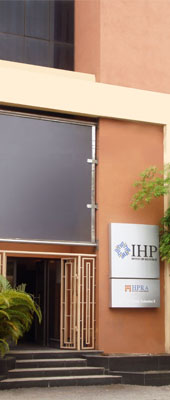| Home | Contact us | Site Map |
||||||||||||||||
|
||||||||||||||||
|
||||||||||||||||
Welcome to IHP |
SEARCH IHP | |||||||||||||||
|
| SPOTLIGHT | ||||
 We will be holding a full-day conference at the Galle Face Hotel to share findings from the SLHAS study, to explain research opportunities, and to discuss future plans We will be holding a full-day conference at the Galle Face Hotel to share findings from the SLHAS study, to explain research opportunities, and to discuss future plans
We will be holding a full-day conference at the Galle Face Hotel to share findings from the SLHAS study, to explain research opportunities, and to discuss future plans. click >>More... |
 Sri Lanka Health Accounts: National Health Expenditure 1990-2019 Sri Lanka Health Accounts: National Health Expenditure 1990-2019
Regular tracking and reporting of health expenditure flows is vital to understand and monitor Sri Lanka's health system. The original Sri Lanka Health Accounts (SLHA) system and Sri Lanka National Health Accounts (SLNHA) framework were designed by IHP staff, led by Ravi P. Rannan-Eliya, working under the direction of the Ministry of Health Management Development and Planning Unit and with the funding support of World Bank during 1998-1999. Sri Lanka Health Accounts (SLHA) estimates describe how much the country spends on healthcare, and how this is spent and by whom, applying international definitions. We have released our new publication Sri Lanka Health Accounts: National Health Expenditure 1990-2019. Electronic version of this publication and other expenditure tables and figures are accessible at ihp.lk/slha. |
Sri Lanka's population has largely stopped growing, and it is older and will age more rapidly than most other developing countries. Sri Lanka's critical problem is that it will grow old before it becomes rich. As Sri Lanka's population ages, the costs of looking after the needs of the elderly will increase and will translate into increased fiscal costs for government. Whilst social norms still largely ensure that the family looks after their own elderly, the numbers of elderly living alone are already increasing at a rapid pace. This trend is as fast as that experienced by Japan in the 1970s. Sri Lankan policy makers should learn from Japanese experience that this is likely to lead to rapid changes in future, and that a policy which assumes family will continue to bear the burden will increasingly not be realistic. >>Read more |
||

|

|

|

|
|||
|
© Copyright IHP. All rights reserved. For more information contact |




